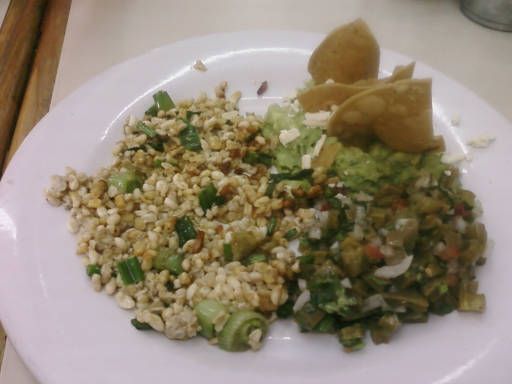Albuquerque, 5/28/38 T.A.D. – As a Future News correspondent, I’ve witnessed firsthand our world’s evolution, both major and subtle. When it comes to our food choices, a significant shift has occurred on what most Future News readers think of as the “far” side of the gate — my side – particularly regarding protein from insects. If the thought of feasting on bugs makes you cringe, don’t sweat! Insects are a delicious, sustainable way to help feed our ever-growing population.
Insect farming has gained traction in recent years, presenting an eco-friendly alternative to traditional livestock. In 2038, insect protein is not just a common staple, but it also dishes up creative and nutritious meals. Countries like Mexico have a long-standing tradition of consuming insects, a practice that other countries have started to adopt as a response to advanced agriculture and increased environmental awareness.
“Insect cultivation is highly efficient and sustainable,” explains Dr. Persephone Castellanos, an entomologist and insect farmer from Mexico City. “Quick reproduction, minimal resource requirements, and low waste production set them apart from conventional livestock like cows or pigs.”
Sophisticated insect farming facilities breed a variety of insect-based foods. Crickets, mealworms, and black soldier fly larvae rank among the top choices for large-scale insect farming. Combined with basic carbohydrates from algal farming, insect farming plays a pivotal role in addressing food security for our ever-expanding global population.
Insect protein offers more than just sustainability. Dr. Castellanos points out that they’re “rich in essential nutrients like complete proteins, healthy fats, vitamins, and minerals.”
Innovative insect-based dishes have become increasingly mainstream, from whole-grilled culinary treats to processed ingredients. Cricket flour, a versatile kitchen staple, adds a healthy protein boost to numerous dishes. Restaurants now serve up inventive insect-based dishes, like black soldier fly larva burgers (known by the less squirm-inducing euphemism “blackburgers”) and mealworm tacos, which boast both nutritional benefits and tantalizing flavors as well.
“Insects provide a unique taste and texture that can truly transform a dish,” explains Chef Raúl Delgada, the mastermind behind Gaia’s Plate, a renowned restaurant in Barcelona specializing in insect-based gastronomy. “They can be savory, nutty, or even sweet, depending on the insect and the preparation,” he enthuses.
In 2038, insects as a food source have progressed from a niche practice to an integral part of our global cuisine. The world population continues to expand, and finding sustainable and efficient food sources has become increasingly critical. Insects have proven to be versatile, nutritious, and eco-friendly options that nurture our bodies and preserve our planet.
Savor a slice of rich cricket chocolate cake. Trust me, your taste buds and the environment will appreciate your adventurous spirit!
Reporting for Future News, this is Isabella Torres in Albuquerque.
